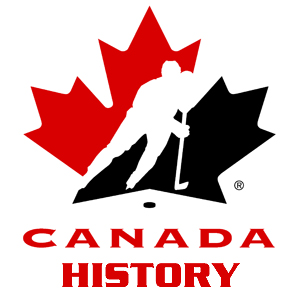What is hockey without play-by-play announcing?
Since the days when families would gather around their cathedral radios of the 1930s, the voice of one sportscaster or another would capture the imaginations of Canadians.
Toronto Maple Leafs games were first aired November 1931 on Canadian National Railways Radio, a precursor to the CBC.
The show that had kids tightening their grips on their sticks was the General Motors Hockey Broadcast. In 1934 Imperial Oil took over sponsorship.
The CNR network became the Canadian Radio Broadcasting Commission and by 1936, as the Canadian Broadcasting Corporation, ushered in Hockey Night in Canada, replete with host Gordon Calder, announcer legend Foster Hewitt and Percy LeSueur providing the colour.
Both Montreal teams of the time had their own transmissions. Doug Smith and Elmer Ferguson provided the voices of the Maroons while René Lecavalier did the play-by-play in French for Habs fans.
At every game there was commentary in the Hot Stove Lounge, and three stars of the game were selected after the final blast of the horn.
Weeks after televised broadcasting started in 1952, HNIC would change the way Canadians spent their Saturday nights: listening to Foster greet them with, “Hello Canada and hockey fans in the United States and Newfoundland.… ”
Between radio and television, fans listened to Foster Hewitt for forty years. His phrase, “He shoots, he scores,” left an indelible stamp on Canadian memory.
With the 1968 season, hockey enthusiasts had a new musical theme to their beloved show. Composed by Dolores Claman and orchestrated by Jerry Toth, it became one of the most identifiable pieces of music in Canada.
Hewitt would retire from TV, but made one final appearance during the 1972 Summit Series. He died April 21, 1985.
Son Bill Hewitt was one of many to pick up from where Foster left off, along with announcers Danny Gallivan, Dick Irvin Jr. and Jim Robson.
In 1980, a changing of the guard occurred. With the Colorado Rockies failing to qualify for the NHL playoffs, their coach Don Cherry was available. CBC hired Cherry, known for his rock ’em, sock ’em personality, as a game analyst alongside host Dave Hodge.
Not happy with Cherry’s biased perspective — he openly rooted for Boston or Toronto — CBC created Coach’s Corner as a niche for the oft-blunt Cherry.
Dave Hodge co-hosted the show with Grapes, as Cherry was known, until 1987. Then Ron MacLean began playing Cherry’s foil, which he has continued for past 24 years.
In 2008 one of the most iconic parts of HNIC was lost as CBC failed to renew the rights to “The Hockey Theme”. CTV’s TSN picked up the rights to Claman and Toth’s collaboration, and in its absence CBC ran a nationwide contest to discover Saturday night’s new jingle.
The winner was Colin Oberst’s “Canadian Gold”, which begins with Foster Hewitt addressing the hockey-loving nation — coming full circle back to the voice that gave us such memorable moments as Bill Barilko’s Stanley Cup-winning goal and Gordie Howe’s 500th marker.
Sponsored by The Canadian Experience and Maple Leaf Sports + Entertainment, “Canada’s Hockey Experience: The Sport of a Country” is a unique, 20-week online series on the history of hockey.

